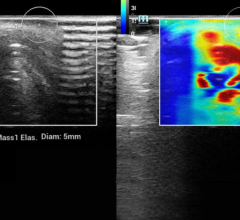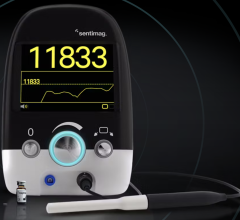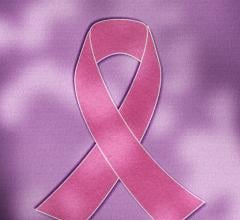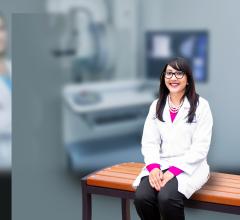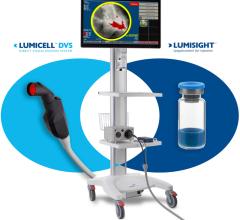
The U.S. Preventive Services Task Force has published a final recommendation statement on screening for breast cancer. The Task Force now recommends that all women get screened for breast cancer every other year starting at age 40 and continuing through age 74. See details here. Image courtesy: USPSTF
April 30, 2024 — The U.S. Preventive Services Task Force (Task Force) today published a final recommendation statement on screening for breast cancer. The notification is presented in its entirety below.
The Task Force now recommends that all women get screened for breast cancer every other year starting at age 40 and continuing through age 74. This is a B grade. More research is needed about whether and how additional screening might help women with dense breasts stay healthy and on the benefits and harms of screening in women older than 75. These are I statements. The use of the term women in this recommendation includes cisgender women and other people assigned female at birth.
Grades in this recommendation:
B: Recommended.
I: The balance of benefits and harms cannot be determined.
View the full Final Recommendation Statement issued by the USPSTF.
Breast cancer is the second most common cancer and the second most common cause of cancer death for women in the United States. While the Task Force has consistently recognized the value of mammography, we previously recommended that women in their 40s make an individual decision about when to start screening based on their health history and preferences. In this new recommendation, the Task Force now recommends that all women get screened starting at age 40. Fundamentally, this is a shift from recommending that women start screening between the ages of 40 and 50, to recommending that all women start getting screened when they turn 40.
“More women in their 40s have been getting breast cancer, with rates increasing about 2 percent each year, so this recommendation will make a big difference for people across the country,” says Task Force chair Wanda Nicholson, M.D., M.P.H., M.B.A. “By starting to screen all women at age 40, we can save nearly 20 percent more lives from breast cancer overall. This new approach has even greater potential benefit for Black women, who are much more likely to die of breast cancer.”
Black women are 40 percent more likely to die of breast cancer than White women and too often get deadly cancers at younger ages. Ensuring Black women start screening at age 40 is an important first step, yet it is not enough to improve the existing inequities.
“We need to know how best to address the health disparities related to breast cancer so all women can live longer and healthier lives,” says Task Force vice chair John Wong, M.D. “Clinicians must help reduce any barriers to patients getting the recommended screening, timely, equitable, and appropriate follow-up, and effective treatment of breast cancer.”
There are many key areas where more research is essential. We need to know how best to improve health equity across screening and treatment so we can better help those experiencing disparities related to structural racism, lack of access to care in rural and other communities, low incomes, or other factors associated with risk of breast cancer death. We also need more research on the benefits and harms of screening and treatment in women ages 75 and older. The balance of benefits and harms may shift as women age, but there is very limited research on this group. Additionally, nearly half of all women have dense breasts, which increases their risk for breast cancer and means that mammograms may not work as well for them. We need more studies that show how additional screening with breast ultrasound or MRI might help women with dense breasts.
“Women deserve to have the best science available to guide them on how to protect their health, and we’re asking the research community to prioritize studies that can show us how best to screen for breast cancer in women with dense breasts,” says Dr. Nicholson. “In the meantime, women with dense breasts should talk with their clinician about options for follow-up testing so that they can get the care that’s right for them.”
The Task Force’s recommendation applies to women at average risk of breast cancer, as well as those with a family history of breast cancer and those with dense breasts. The recommendation does not apply to people who have a personal history of breast cancer, who are at very high risk of breast cancer due to certain genetic markers or a history of high-dose radiation therapy to their chest at a young age, or who have had a high-risk lesion on previous biopsies. Anyone concerned with their breast health should talk with their healthcare professional.
The Task Force’s final recommendation statement and corresponding evidence summary and modeling study have been published online in the Journal of the American Medical Association, as well as on the Task Force website. A draft version of the recommendation statement, evidence review, and modeling report were available for public comment from May 9, 2023, to June 5, 2023.
The Task Force is an independent, volunteer panel of national experts in prevention and evidence-based medicine that works to improve the health of people nationwide by making evidence-based recommendations about clinical preventive services such as screenings, counseling services, and preventive medications.
Dr. Nicholson is a senior associate dean for diversity, equity, and inclusion and professor of prevention and community health at the Milken Institute School of Public Health at the George Washington University. She is a member vice-president of the board of directors of the American Board of Obstetrics & Gynecology; former editor for Health Equity, Diversity and Inclusion for the American Journal of Obstetrics & Gynecology; past chair of the American College of Obstetricians and Gynecologists (ACOG) Diversity, Equity, and Inclusive Excellence Workgroup; and an immediate past member of the executive board of ACOG.
Dr. Wong is vice chair for Academic Affairs, chief of the Division of Clinical Decision Making, and a primary care physician in the Department of Medicine at Tufts Medical Center. He is also a professor of medicine at Tufts University School of Medicine.
More information: www.uspreventiveservicestaskforce.org
Related content:
ACR Issues Statement on Final USPSTF Breast Cancer Screening Recommendations
Task Force Issues New Draft Recommendation Statement on Screening for Breast Cancer
VIDEO: FDA Update on the US National Density Reporting Standard - A Discussion on the Final Rule
VIDEO: Research and Advancements in Breast Imaging Technology
One on One … with Wendie Berg, MD, PhD, FACR, FSBI
VIDEO: The Impact of Breast Density Technology and Legislation

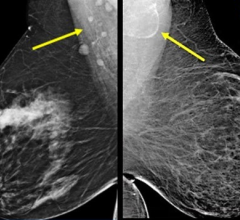
 May 10, 2024
May 10, 2024 



